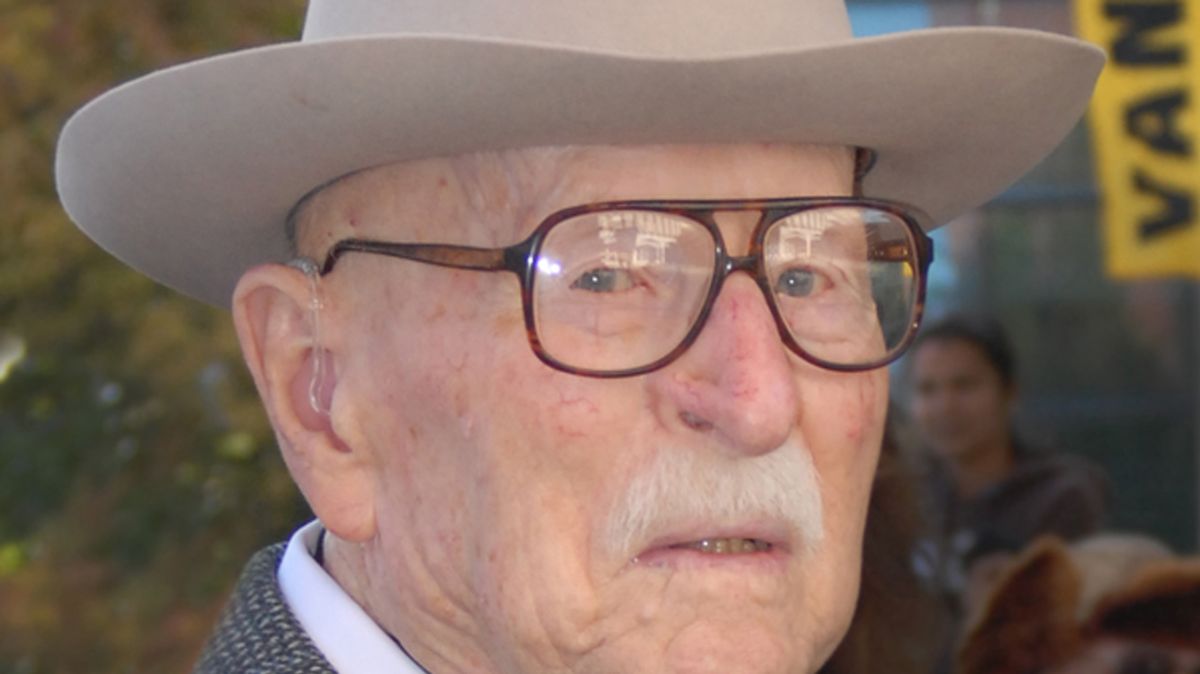Malcolm Renfrew, the man who oversaw Teflon’s development, dies at 103

Malcolm Renfrew didn’t invent Teflon.
But one of the fascinating developments of Renfrew’s fascinating life was that he frequently had to correct people who said he did. It was Renfrew – a son of Spokane who went on to a long, distinguished association with the University of Idaho – who introduced the stuff to the world and who oversaw the team that developed uses for the miracle plastic to which nothing would stick.
Over the past half-century, Teflon has found its way into everything from medical to military applications, but its most famous use – apart from its metaphorical perfection for describing slippery people – is the nonstick frying pan.
“We knew it would be an important chemical,” he once said of Teflon, “although it was not easy to fabricate. The frying pan thing. … I would never have imagined that.”
Renfrew died Saturday in his Moscow home. It was his 103rd birthday. His influence lingers all over the University of Idaho campus – from Renfrew Hall, to the Renfrew lecture series, to the Renfrew fellowship endowment. He helped create the university’s chemistry department and guided decades of scientists through their educations. He painted watercolors of Palouse scenes and played trombone in the Vandal Boosters Non-Marching Pep Band. Two years ago, his birthday was declared Malcolm Renfrew Day in Idaho.
Still, it was his role as a DuPont chemist developing Teflon in the 1930s and ’40s that became his obituary headline. Renfrew presented the first paper on the substance – titled “Polytetrafluorethylene: heat-resistant, chemically inert plastic” – at a meeting of the American Chemistry Society in Atlantic City, N.J., in 1946; the story was picked up by wire services and ran in newspapers around the country.
“PLASTIC DEFIES HEAT AND ACIDS” read a small headline in The Spokesman-Review at the time. The article quoted Renfrew as saying, “No substance has been found which will dissolve or even swell” the plastic.
Renfrew gave a more colorful account of the speech and surrounding events, including some shenanigans with “barfly newsmen,” in an interview he gave in 1987 to the Chemical Heritage Foundation.
“The DuPont advertising and marketing people got me out of bed that morning for last minute counsel,” he said. “I didn’t get any breakfast, I didn’t get any lunch. I gave the paper shortly after lunch; it was the first paper after lunch. We had a tremendous crowd. People stayed around afterwards asking me questions, and so I didn’t get anything to eat. I went to the ACS News Service cocktail party… I drank far too many Manhattans and I became ‘the worst one’ in Atlantic City.”
The discovery of Teflon grew from a happy accident; a lab assistant cracked the valve on a bottle of Freon and researchers discovered that it had left behind a slippery white powder that was impervious to heat, acids – seemingly everything. Renfrew oversaw the effort to turn the discovery into practical and profitable applications.
Renfrew was born in Spokane in 1910 and moved with his family to Colfax and then Potlatch, where he graduated from high school. His father was an accountant and mother worked in the Potlatch post office. When he went to the UI, he gravitated toward chemistry for practical reasons, he said in his 1987 interview.
“My natural interests were in the arts and in music. I became a trombone player at an early age and have continued this,” he said. “Although my interest really would have been in becoming a newspaper man, say, an editor or a writer, I knew that small town newspaper people didn’t do very well financially.”
He earned bachelor’s and master’s degrees in chemistry at the UI in 1932 and 1934, and received his doctorate at the University of Minnesota. Following six years with DuPont, he worked for Kellogg and General Mills before returning to the UI in 1959. Among his first initiatives was improving lab safety; he had been involved in fatal lab accidents at DuPont and it had become a personal focus for him.
He and his wife, Carol, who grew up in Rosalia, became fixtures in Moscow, and not just in the chemistry department. They hosted students in their home and participated in a wide range of community activities. He retired in 1976, but he remained a presence in town and on campus for many years. His wife died in 2010.
“They touched everything,” said Jean’ne Shreeve, a distinguished professor of chemistry who was hired by Renfrew more than 50 years ago. “They were town and they were gown and they participated in every aspect of those two parts of Moscow, Idaho.”
His connection to Teflon stuck to him his whole life, and he was frequently credited mistakenly as the one who’d invented it.
“Always,” Shreeve said. “ Always. But he immediately corrected them. He was very adamant that he had not invented Teflon.”